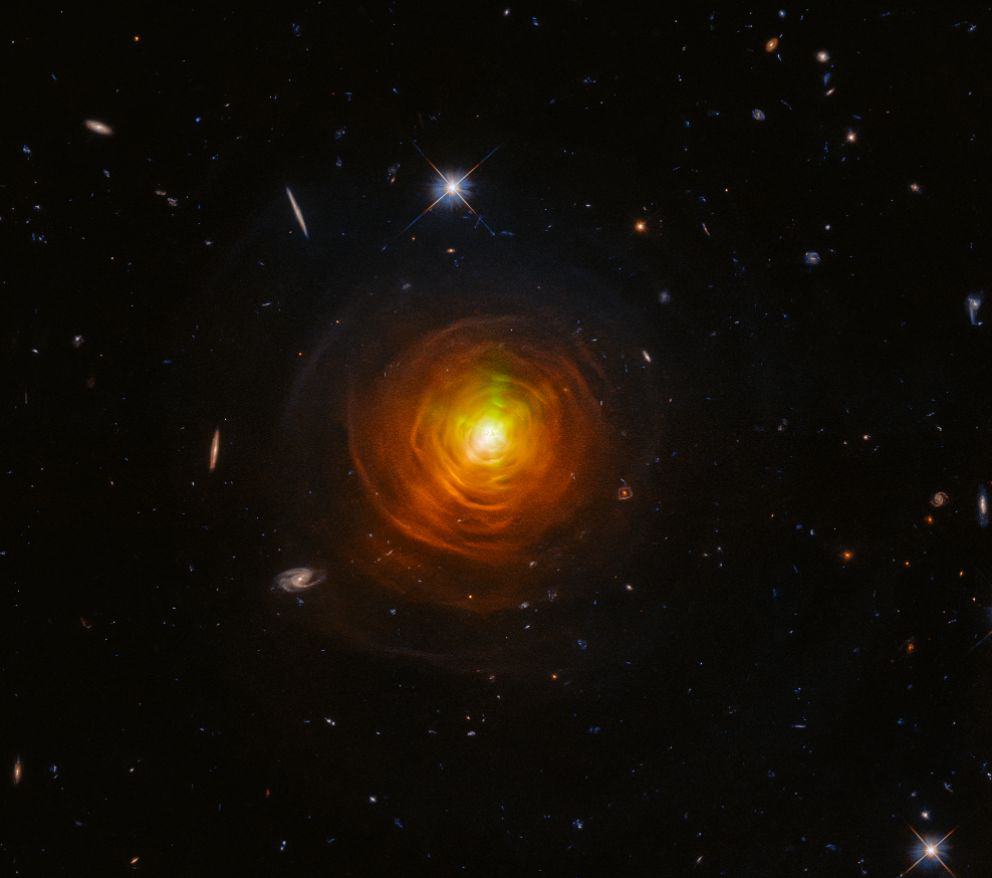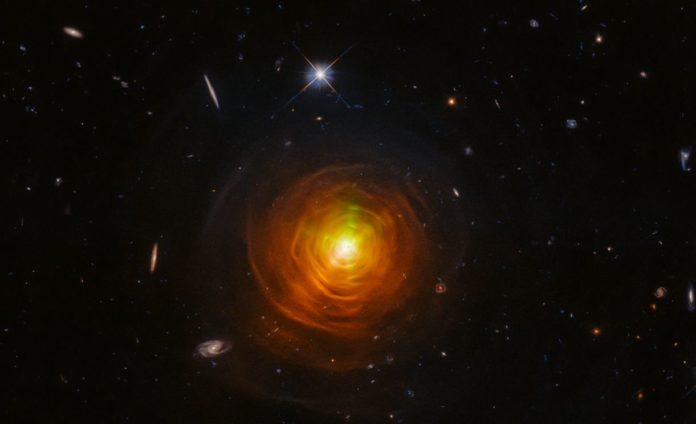CW Leonis was once a red giant the size of the Sun or perhaps larger.
A fading star 400 light-years from Earth has been photographed by scientists using the Hubble telescope.
CW Leonis is classified as a red giant because it was once three to five times the size of the Sun. The star, on the other hand, has dwindled by about a third by this point.
Researchers have been tracking the progress of CW Leonis’ light beams for the past two decades and have found that in that time, the brilliance of the light rays coming from the object has declined dramatically.

According to NASA, the envelope surrounding the star is at least 69,000 years old, and its inhomogeneity and complex structure are generated by either the CW Leonis magnetic cycle, which causes a periodic increase in non-matter ejection or a satellite that has yet to be discovered.
Photos and videos on Thursday, October 28, were published by the press service of the US National Aeronautics and Space Administration (NASA).
You were reading: A Gloomy, Dying Star for Hubble’s Halloween Party
